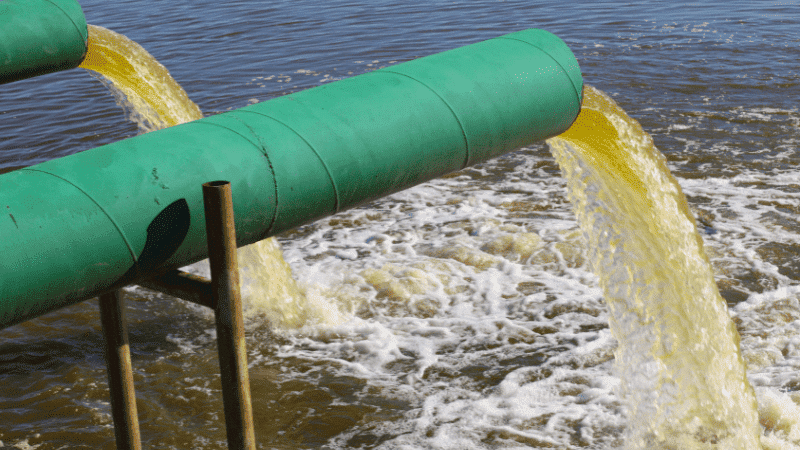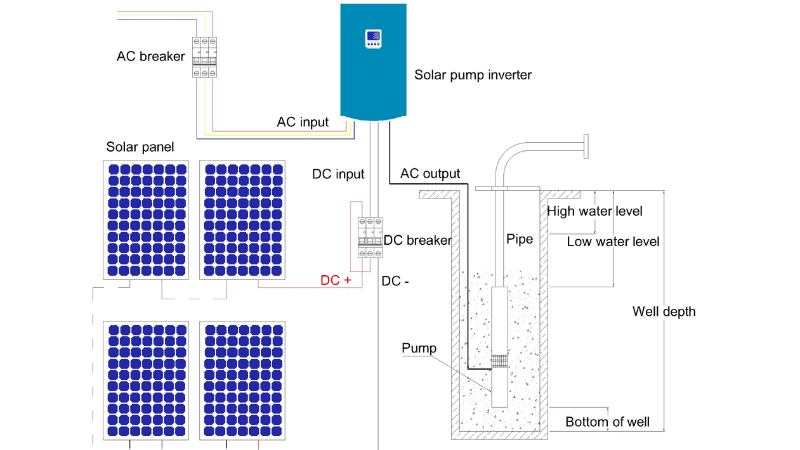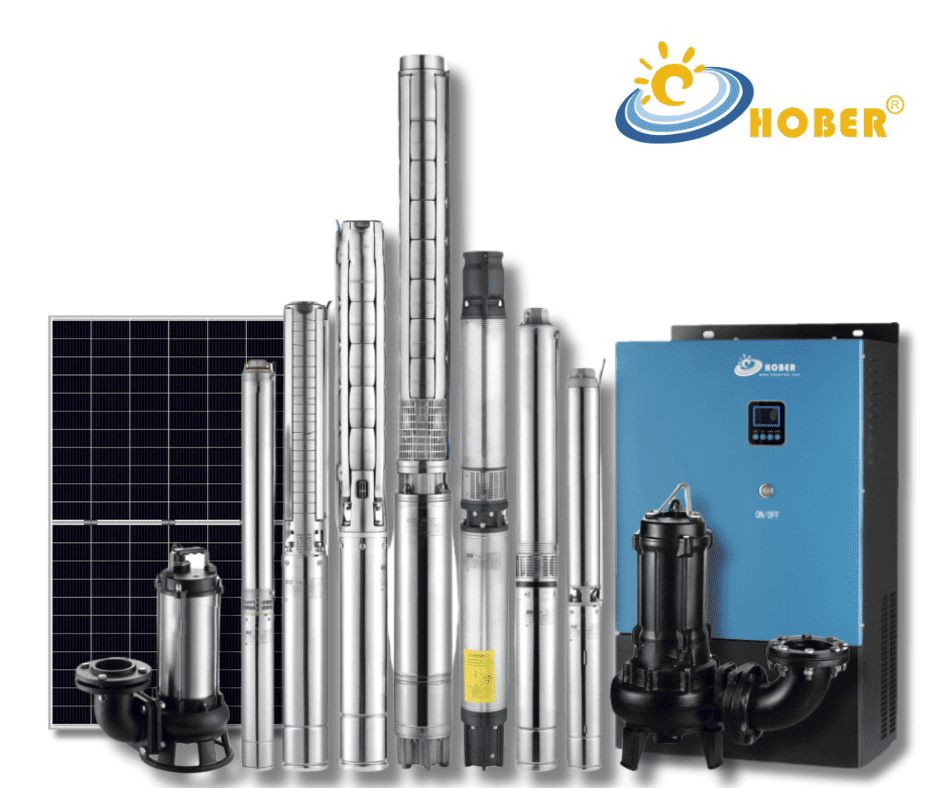In the relentless pursuit of efficiency and sustainability, traditional AC-powered pumps have long been a staple in water systems worldwide. But is there a way to enhance their performance and eco-friendliness? As the CEO of HOBER, I’ve seen firsthand how the right technology can transform even the most power-hungry systems into models of efficiency.
The answer lies in leveraging solar water pump inverters – a bridge between conventional AC pumps and solar energy. By adopting this ingenious solution, AC pumps can operate using clean solar power, reducing both energy costs and carbon footprints.
The quest for greener alternatives has never been more critical, and the shift to solar is leading the charge. Let’s explore how we can turn this vision into a reality, one pump at a time.
How can AC pumps adapt to solar power?

Specifications of traditional AC pumps, such as the 220/240V 1phase 50/60HZ or the more robust 380/400/440V 3Phase 50/60Hz, have served us well. They’re cost-effective and easy to maintain. However, their lower efficiency compared to brushless DC water pumps has been a growing concern. This is where solar inverters come into play, seamlessly integrating with existing pump systems to utilize solar energy without the need for expensive and complex retrofitting.
Why is solar energy a game-changer for AC pumps?

Solar energy isn’t just a buzzword; it’s the future of sustainable power. By tapping into this unlimited resource, we can operate our AC pumps without relying on grid electricity. This not only results in significant cost savings but also contributes to a cleaner environment, aligning with global sustainability goals. Recent data from the International Renewable Energy Agency supports this, indicating a steady increase in the adoption of solar power across industries.
What are the financial benefits of switching to solar?
Switching to solar power does more than just reduce carbon emissions. It represents a smart financial decision for businesses. The initial investment in solar pump inverters is quickly offset by the savings on electricity bills. Moreover, in many regions, there are incentives and subsidies available for solar installations, further sweetening the deal. Detailed cost-benefit analyses provided by Energy Economics Journals show that the return on investment for solar pump systems can be incredibly attractive.
How do solar water pump inverters work?

A solar water pump inverter is essentially the heart of the solar-powered pumping system. It converts the DC power generated by solar panels into AC power that can run your existing pump. This allows for a smooth transition from grid dependence to solar power. The technology behind these inverters has evolved to not only manage the power conversion but also to maximize the efficiency of the pump operation, as documented by Advanced Energy Conversion Studies.
Can solar inverters handle high-power pumps?
Many may wonder if solar inverters can cope with high-power pumps, which often require substantial energy. The answer is a resounding yes. Modern inverters are designed to handle a wide range of power specifications, catering to pumps that operate on hundreds of kilowatts. The scalability of these systems is highlighted in reports from the Global Power Electronics Symposium, showcasing their ability to manage intense power demands.
What about maintenance and longevity?
One of the many advantages of AC pumps is their ease of maintenance. Fortunately, this isn’t compromised when integrating solar inverters. In fact, the lack of moving parts in solar panels and the simplicity of the inverters can potentially reduce maintenance demands. As for longevity, the durability of solar components, often with warranties extending over 25 years, means that once installed, your system is set for the long haul. Industry insights from Solar Tech Reviews provide a comprehensive overview of the longevity and reliability of these systems.
Conclusion
In sum, the transformation of AC-powered pumps into efficient solar water pump systems is not just a possibility; it’s a practical and financially sound decision. As we continue to innovate at HOBER, we’re committed to empowering businesses with sustainable solutions that don’t compromise on performance. Embrace the change, and let’s make every drop of water count in the most eco-friendly way possible.

